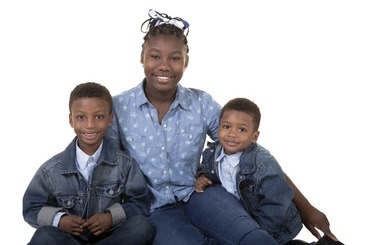The role of siblings in caregiving is often complex, and when it comes to Black families, the expectations placed on siblings to care for their brothers or sisters can be particularly challenging. This article delves into the issue of parents, especially in the Black community, relying on their children to become primary caregivers for their siblings, examining the unfairness and selfishness of such expectations. Using real-life stories as references, we explore the impact on individuals striving for their own dreams while being burdened with caregiving responsibilities.
The article begins by sharing a personal story of an individual whose father expects them to look after their non-verbal autistic brother for the rest of his life. Despite having dreams and aspirations, this person faces the daunting reality of being tethered to caregiving responsibilities. This narrative serves as a poignant example of the challenges Black siblings may encounter in their journey to pursue personal goals while being weighed down by familial expectations.
Drawing on a friend’s experience, the article highlights the story of someone with a Down syndrome sister. The parents expected this sibling to be the lifelong caregiver, imposing restrictions on their aspirations. However, the friend chose a different path, joining the Air Force and securing an overseas assignment. This example illustrates the tension that can arise when siblings decide to pursue their ambitions, challenging the parents’ expectations.
The article discusses the inherent unfairness of parents expecting their children to become primary caregivers. It explores the emotional toll on siblings who may feel torn between familial duties and personal aspirations. The disproportionate burden placed on Black siblings is examined, shedding light on the cultural context that may contribute to these expectations.
By delving into the impact on individuals striving for their dreams, the article emphasizes the importance of establishing boundaries and challenging traditional norms. It acknowledges the love siblings may have for their brothers and sisters but argues that parents bear the ultimate responsibility for making care arrangements. The story illustrates how demanding caregiving roles can lead individuals to distance themselves, both physically and emotionally, from their familial obligations.
In conclusion, the article advocates for a reevaluation of societal norms and expectations within the Black community regarding sibling caregiving roles. It calls for a more nuanced approach that considers the individual aspirations and dreams of each sibling. By sharing stories of those who dared to defy conventional expectations, the article encourages open conversations about the fair distribution of caregiving responsibilities within families, fostering an environment where each member can pursue their own path without compromising their dreams.

